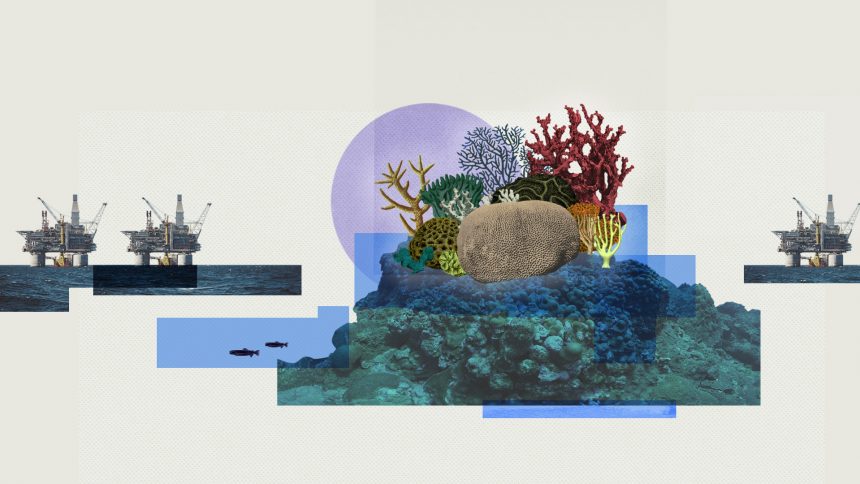Proof of Concept is a captivating video series that delves into the world of environmental research by showcasing the science and scientists behind some of the most unexpected studies. In collaboration with Science Friday, this particular story sheds light on the Flower Garden Banks National Marine Sanctuary, a hidden gem in the Gulf of Mexico located amidst offshore oil platforms, approximately 150 miles away from Houston. Despite being surrounded by an industry known for oil drilling, this sanctuary houses one of the healthiest coral reefs in the world.
Marine researchers are in awe of the floral beauty that thrives in the Flower Garden Banks. Michelle Johnston, the sanctuary’s superintendent, describes the abundant coral as almost disorienting due to its sheer magnitude. The history of the region plays a crucial role in understanding how the coral reef can flourish in such close proximity to oil drilling sites. The underwater mountains, known as “salt domes,” are a result of the geological formation millions of years ago, allowing coral polyps to latch on and thrive on the peaks, creating the majestic Flower Garden Banks.
The sanctuary’s distance from the shore has shielded it from many threats like overfishing and coastal pollution. Additionally, its depth and northern latitude protect it from the worst effects of global warming. While other coral reefs were succumbing to heat stress and bleaching in the summer of 2023, Flower Gardens managed to fare better thanks to its unique geology.
Despite being surrounded by oil and gas platforms, the Flower Garden Banks have so far avoided catastrophic oil spills. However, the impact of oil extraction, carbon emissions, and climate change is evident in the corals’ skeletons. Scientists like Amy Wagner have been able to extract valuable information about pollution, climate change, and historical events by studying coral cores collected from the Flower Garden Banks. By analyzing elements like barium levels in the coral cores, researchers can trace the impact of human activities on the environment.
The corals act as time capsules, recording changes in ocean chemistry and revealing the effects of fossil fuel emissions. As the carbon atoms in the corals get lighter due to rising fossil fuel emissions, the reef faces threats of major bleaching events as soon as 2040. By reducing emissions at a more moderate pace, researchers hope to extend the lifespan of the Flower Garden Banks and protect this invaluable natural wonder for future generations.






